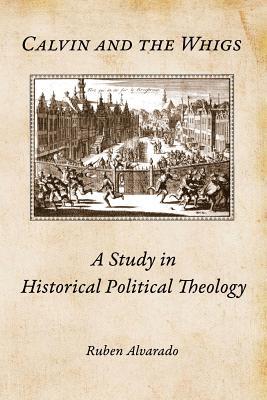The relationship between Calvinist political theory and John Locke's
Two Treatises on Civil Government has been debated for some time, and
the consensus is that Locke's theory constitutes the further
development of Calvinist theory. But upon closer analysis, that
conclusion proves entirely flawed. Calvinism proves to be worlds apart
from the political philosophy of John Locke. It proves to be the mature
fruit of the medieval "two swords" form of government, in which church
and state share public power, rather than an early stage on the road to the
dissociation of church and state, a road which Locke put us firmly upon
with his own formulation of political power. Indeed, upon closer
inspection Calvinism proves to be the product of a thousand-year
tradition of Western political thought commencing with Augustine
and moving through the Carolingian Renaissance and the Papal
Revolution. That history is rediscovered and outlined in this book, as
the preliminary means for recovering the true meaning of political
Calvinism and its utter discontinuity with the modernism that
commenced with Locke's paradigm. It also helps disabuse us of the
notion that history is linear, and that progress is straightforward. Rather,
it helps us to understand the deformational period of history in which
we live, and the need for a return to a confessional understanding of law,
the state, and constitutionalism.

Calvin and the Whigs: A Study in Historical Political Theology
The relationship between Calvinist political theory and John Locke's
Two Treatises on Civil Government has been debated for some time, and
the consensus is that Locke's theory constitutes the further
development of Calvinist theory. But upon closer analysis, that
conclusion proves entirely flawed. Calvinism proves to be worlds apart
from the political philosophy of John Locke. It proves to be the mature
fruit of the medieval "two swords" form of government, in which church
and state share public power, rather than an early stage on the road to the
dissociation of church and state, a road which Locke put us firmly upon
with his own formulation of political power. Indeed, upon closer
inspection Calvinism proves to be the product of a thousand-year
tradition of Western political thought commencing with Augustine
and moving through the Carolingian Renaissance and the Papal
Revolution. That history is rediscovered and outlined in this book, as
the preliminary means for recovering the true meaning of political
Calvinism and its utter discontinuity with the modernism that
commenced with Locke's paradigm. It also helps disabuse us of the
notion that history is linear, and that progress is straightforward. Rather,
it helps us to understand the deformational period of history in which
we live, and the need for a return to a confessional understanding of law,
the state, and constitutionalism.